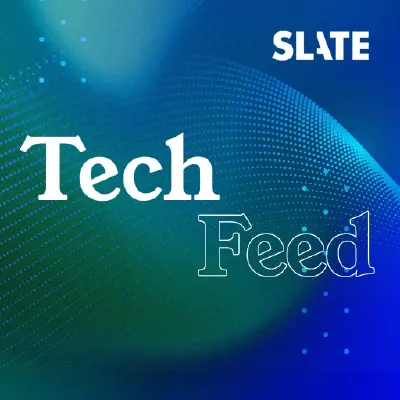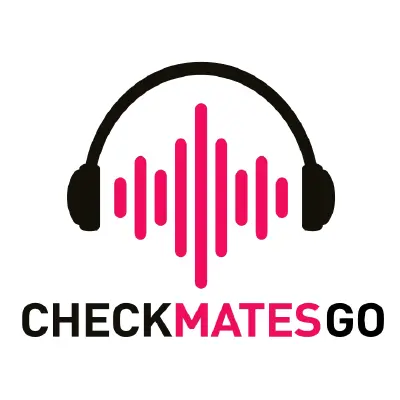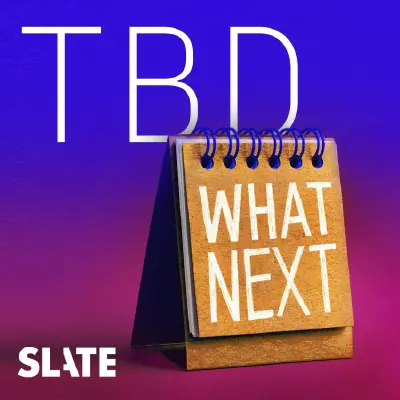Podcasts about Technology
Episodes about Technology

He started using ChatGPT to help with spreadsheets. But their relationship took a turn, and before long it was telling him he could leap off a 19-story building and fly.
Guest: Kashmir Hill, features writer at the New York Times.
Want more What Next TBD? Subscribe to Slate Plus to access ad-free listening to the whole What Next family and all your favorite Slate podcasts. Subscribe today on Apple Podcasts by clicking “Try Free” at the top of our show page. Sign up now at slate.com/whatnextplus to get access wherever you listen.
Learn more about your ad choices. Visit megaphone.fm/adchoices

He started using ChatGPT to help with spreadsheets. But their relationship took a turn, and before long it was telling him he could leap off a 19-story building and fly.
Guest: Kashmir Hill, features writer at the New York Times.
Want more What Next TBD? Subscribe to Slate Plus to access ad-free listening to the whole What Next family and all your favorite Slate podcasts. Subscribe today on Apple Podcasts by clicking “Try Free” at the top of our show page. Sign up now at slate.com/whatnextplus to get access wherever you listen.
Learn more about your ad choices. Visit megaphone.fm/adchoices

News headline of the week. Hosted on Acast. See acast.com/privacy for more information.

Jul 11, 2025
Can Sinaptica Slow Alzheimer’s Painful Decline; Heidi Dohse on patient-centered design
DeviceTalks Podcast Network ❭
In this episode of the DeviceTalks Weekly Podcast, Host Tom Salemi hears encouraging news from Ken Mariash, CEO of Sinaptica Therapeutics, a neuromodulation company developing a TMS system that may be able to slow the advance of Azheimer’s. Mariash paints a hopeful picture for people - and families - fearing this dreadful disease.
In our Future of MedTech Opportunities (FOMO) interview, DeviceTalks’ Emira Wininger talks with Heidi Dohse, founder and president of Tour de Heart. Dohse has used a pacemaker for nearly all of her life and brings important insights on the importance of patient design.
This episode is brought to you by Interpower Corp. Go to Interpower.com for more information.
Thank you for listening to this episode of the DeviceTalks Weekly Podcast.
***
Enjoy this podcast? Follow DeviceTalks Weekly on all major podcast players + Follow us on YouTube.com/@DeviceTalks to ensure you never miss an episode.
Want access to the complete DeviceTalks Podcast Network (DTPN)? Follow us today at https://devicetalks.castos.com/subscribe

You have to hand it to Peden Jones. He really has a grasp on the mechanics of 3D printing — and he's not stingy with it. Why, when they came calling, he lent the College of Liberal Arts a helping hand without hesitation. No sir, it's not hard to put a finger on what makes this mechanical engineering graduate research assistant special. Simply put, he believes in the human touch — and the almost-human, too.

Jul 11, 2025
S6E28 Paul Vizzio | Engineering Naval Submarines, Pet Products, & Elite Sports Training Machines
Being an Engineer ❭
Send us a textIn today’s episode, Paul will explore how he scales hardware teams, builds for manufacturability, navigates supply chain complexity, mentors engineers, and embraces community‑driven innovation. Get ready for insights on leadership, prototyping, and bringing hardware to life from idea to market.Main Topics:Proteus Motion's V1 and V2 machine developmentEngineering career progressionHardware product design and manufacturingConsulting and entrepreneurshipNew York Hardware Meetup community buildingAbout the guest: Paul Vizzio is a seasoned mechanical engineer and hardware leader with a diverse background spanning consumer electronics, cleantech, and defense. Starting as a product management intern at SolidWorks, he later managed undersea vehicle projects at the Naval Undersea Warfare Center. As the first mechanical engineer at goTenna, he developed both consumer and military-spec products from concept to production in under a year.In 2017, he founded Vizeng, providing end-to-end mechanical and supply-chain consulting to NYC hardware startups. He also led product development for RoadPower’s regenerative road systems.Since 2019, Paul has led hardware efforts at Proteus Motion, overseeing team growth, R&D, and supply chain. His work includes redesigning the V1 system and launching the V2 within a year—contributing to Proteus’s adoption by 400+ pro sports teams and clinics. He also co-organizes the NY Hardware Meetup and founded the D2C pet brand RemieDog, reflecting his passion for innovation and community-building.Links:Paul Vizzio - LinkedInVizeng WebsiteAaron Moncur, hostClick here to learn more about simulation solutions from Simutech Group. 🚀 Join Us at PDX 2025! 🚀PDX 2025 is the Product Development Expo designed for engineers who want hands-on training from industry experts. PDX focuses on practical skill-building, cutting-edge tools, and real-world solutions.📅 October 21-22, 2025 📍 Mesa Convention Center, AZ 🔗 https://reg.eventmobi.com/product-development-expo-2025About Being An Engineer The Being An Engineer podcast is a repository for industry knowledge and a tool through which engineers learn about and connect with relevant companies, technologies, people resources, and opportunities. We feature successful mechanical engineers and interview engineers who are passionate about their work and who made a great impact on the engineering community. The Being An Engineer podcast is brought to you by Pipeline Design & Engineering. Pipeline partners with medical & other device engineering teams who need turnkey equipment such as cycle test machines, custom test fixtures, automation equipment, assembly jigs, inspection stations and more. You can find us on the web at www.teampipeline.us

Jul 11, 2025
#693: Hazards in Houses, Larsen Trusses, AI in Construction
The Fine Homebuilding Podcast ❭
Jerry says to look for hazardous materials when considering fixer-uppers. Ryan asks about building Larsen trusses. Daniel asks if there’s a place for AI in construction. Ian, Brian and Patrick help listeners with their building questions and talk about what’s new in the world of residential construction and Fine Homebuilding. Tune in to Episode 693 of the Fine Homebuilding Podcast to learn more about: What are Larsen trusses and how to build them Hazardous materials that might be found in a fixer-upper Figuring out how AI can help build better buildings Have a question or topic you want us to talk about on the show? Email us at fhbpodcast@taunton.com. ➡️ Check Out the Full Show Notes: FHB Podcast 693 ➡️ Learn about the Fine Homebuilding Summit ➡️ Follow Fine Homebuilding on Social Media: Instagram • Facebook • TikTok • Pinterest • YouTube ⭐⭐⭐⭐⭐ If you enjoy the show, please subscribe and rate us on iTunes, Spotify, YouTube Music, or wherever you prefer to listen.

This week, we welcome Andrew back by digging deep into everything Galaxy Unpacked ranging from the new Z devices to the general vibe of the event overall. But first, we discuss the reaction to the Nothing Phone 3 review and David tries again to convince Marques that the Fairphone 6 minimal switch is a good idea. Lastly, Andrew tries to explain some breaking F1 news in real time to David and Marques in terms of tech. It was a fun one!
Links:
MKBHD - Nothing Phone 3 review
MKBHD - Z Flip 7 and Z Fold 7 Impressions
Wix (Sponsored) - Free trial for our listeners!
Music provided by Epidemic Sound
Shop the merch:
https://shop.mkbhd.com
Social:
Waveform Threads: https://www.threads.net/@waveformpodcast
Waveform Instagram: https://www.instagram.com/waveformpodcast/?hl=en
Hosts:
Marques: https://www.threads.net/@mkbhd
Andrew: https://www.threads.net/@andrew_manganelli
David: https://www.threads.net/@davidimel
Adam: https://www.threads.net/@parmesanpapi17
Ellis: https://twitter.com/EllisRovin
TikTok:
https://www.tiktok.com/@waveformpodcast
Join the Discord:
https://discord.gg/mkbhd
Music by 20syl:
https://bit.ly/2S53xlC
Waveform is part of the Vox Media Podcast Network.
Learn more about your ad choices. Visit podcastchoices.com/adchoices

Sabrina Maniscalco is the CEO and cofounder of Algorithmiq, a startup developing quantum algorithms for applications in life sciences based in Helsinki. She is also a Professor of Quantum Information, Computing, and Logic at the University of Helsinki. Beforehand, she held academic positions in Sofia, Durban, Turku, and Edinburgh, before returning to Finland in 2014 to lead the Theoretical Physics Laboratory in Turku. She moved to the University of Helsinki in 2020, coinciding with the founding of Algorithmiq. She’s done research on noise in quantum devices, complex quantum systems, and quantum simulations.

Jul 10, 2025
S07E11: ARMed for Threat Prevention
CheckMates Go: Cyber Security Podcast from Check Point ❭
PhoneBoy discusses Check Point's announcement of the Quantum Force 3900 Series Appliances, sk183199, Hotfix Installation Order, R82.10 Production Early Availability, and new updatable objects (including one for MCP Servers).Make sure to register for our upcoming TechTalk showing off Veriti, a.k.a. Threat Exposure Management.



